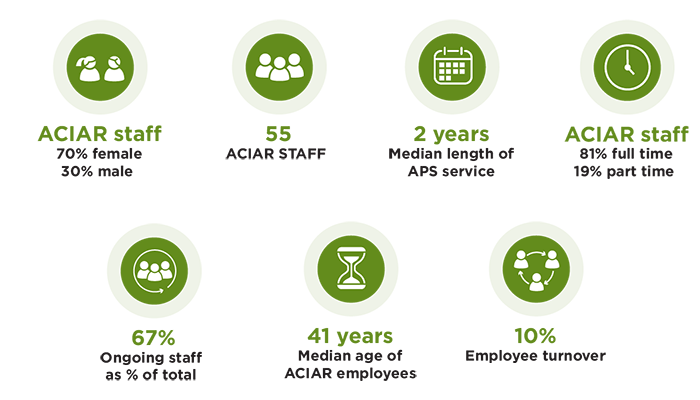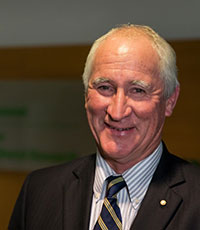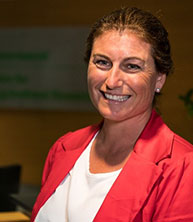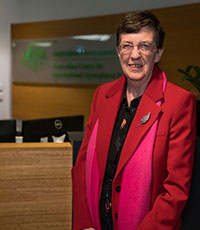How ACIAR operates
Established under the Australian Centre for International Agricultural Research Act 1982 (the ACIAR Act), ACIAR is a non-corporate Commonwealth entity under the Public Governance, Performance and Accountability Act 2013 and the Public Service Act 1999. We operate as a statutory agency within the portfolio of Foreign Affairs and Trade. The ACIAR Chief Executive Officer reports directly to the Minister for Foreign Affairs.
Our staff
As at 30 June 2020
Our governance structure
Commission for International Agricultural Research
The Commission provides expert, strategic advice to the Minister for Foreign Affairs on priorities for ACIAR. The Commission in 2019-20 consisted of a chair and five other Commissioners:
- Mr Don Heatley OAM (Chair)
- Ms Catherine Marriott
- Professor Gabrielle Persley AM
- Dr Sasha Courville
- Ms Su McCluskey MAICD
- Professor Andrew Campbell FTSE FAICD
Acknowledgments
ACIAR acknowledges the outstanding contributions of these Commissioners who retired in 2019–20.
Mr Don Heatley, Chair
Don Heatley’s six-year tenure occurred in a period that saw many changes within ACIAR, ranging from the appointment of a new CEO and new commissioners to the implementation of a 10-year strategy.
‘I felt very attracted to the notion of chairing a commission that conducts agricultural research-for-development in developing countries,’ Mr Heatley said. ‘ACIAR is an organisation that epitomises the values Australia has to offer other countries, including support and friendship. To not want to be part of something like that, well, your values would have to lie somewhere else.’
Mr Heatley hopes that, despite any future external changes, the focus of ACIAR will remain its people-to-people engagement. Throughout its history, that engagement has seen ACIAR gain invaluable credibility, along with the vital trust and respect of its partner countries.
‘If I thought about what I have learned during my time with ACIAR it would certainly be what an amazing organisation it is,’ he said. ‘It adopts a low-key, extremely pragmatic approach to solving a plethora of food supply and security issues faced by vast populations in the developing countries of the Indo-Pacific. ACIAR is low on process, high on delivery and punches well above its weight on a small fraction of the Australian aid budget.
‘I thank my fellow commissioners, CEO Professor Andrew Campbell and the entire ACIAR team for their support and wish them the very best of good fortune as they work to resolve the many issues faced by our partner countries.’
Ms Catherine Marriot
With experience ranging from working as a cattle nutritionist in South-East Asia to establishing a rural women’s mentoring program between Australia and Indonesia, it was unsurprising that Catherine Marriott was appointed to the commission six years ago.
In June this year, Ms Marriott’s tenure concluded. However, she believes she is leaving an organisation that has built a greater public presence, has a sharper focus on gender outcomes and will lead Australia’s foreign aid program on One Health issues in a post-COVID-19 environment.
‘Something I pushed really hard for early on—which I am so happy we have achieved—is a stronger communication strategy,’ explained Ms Marriott. ‘I could see that there was a risk for ACIAR in not sharing the “good news” stories we had built.’
Ms Marriott said she sees a strong future for ACIAR in helping deliver on the United Nations Sustainable Development Goals as well as driving the One Health and international research agendas. ‘With the current management and capacity of ACIAR, we are very well placed to contribute to and indeed lead some of the most important animal and human science the world needs into the future.’
Professor Gabrielle Persley
Professor Gabrielle Persley’s journey over the past 40 years, from being the first ACIAR-appointed scientist when she was appointed as Scientific Adviser, to her appointment to the Commission for International Agricultural Research, has been one of passion and pride. It has involved her in almost every aspect of ACIAR, as a research program manager, a project leader, an investment partner, and a Commissioner.
Having been instrumental in setting up the organisation, she became our first scientific staff member. She was with us for eight years and, among other roles, worked with Pacific island countries as Pacific research coordinator.
Even after she moved on in 1990, she was never far from our orbit. In 2018, Australia’s Minister for Foreign Affairs Senator the Hon Marise Payne invited Professor Persley to join the Commission for International Agricultural Research.
‘When I received the invitation to become a member of the Commission, that was one of those falling-off-the-chair moments where you think, “That’s an interesting cycle of life that rolled out in front of you.” So yes, I must admit I’m really pleased about that,’ she said.
Professor Persley said the leadership of ACIAR in the early days created both a solid foundation and a robust approach to providing aid through agricultural research that has sustained ACIAR as a key partner in Australia’s foreign aid program over the decades.
‘Looking back, I feel it was part vision, part persistence that aligned with political wills when the time was right. The strong leadership in the initial years is one of the key factors why ACIAR remains today, despite many changes in political leadership and changing priorities in foreign aid policy. ACIAR remains as strong now as it was in its early days.’



